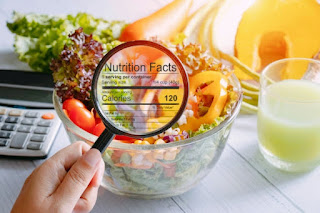The Different Types of Diets And How They Work
There are many different types of diets, each with its own set of rules and restrictions. Some of the most popular diets include:
* **Low-carb diets** restrict the intake of carbohydrates, which are the body's main source of energy. This forces the body to burn fat for fuel instead. Low-carb diets can be effective for weight loss, but they can also be difficult to follow and may lead to nutrient deficiencies.
* **Low-fat diets** restrict the intake of fat, which is also a major source of calories. This can help with weight loss, but it's important to make sure that you're getting enough healthy fats, such as those found in nuts, seeds, and avocados.
* **Mediterranean diet** is a healthy eating pattern that emphasizes fruits, vegetables, whole grains, legumes, nuts, and seeds. It also includes moderate amounts of fish, poultry, and dairy. The Mediterranean diet has been shown to reduce the risk of heart disease, stroke, and other chronic diseases.
* **Intermittent fasting** is an eating pattern that involves alternating periods of fasting and eating. There are many different ways to do intermittent fasting, but the most common approach is to fast for 16 hours and eat during an 8-hour window. Intermittent fasting can help with weight loss, improve insulin sensitivity, and protect against chronic diseases.
* **Vegan diet** is a plant-based diet that excludes all animal products, including meat, poultry, fish, eggs, and dairy. Vegan diets can be healthy and nutritious, but it's important to make sure that you're getting enough protein, iron, calcium, and other nutrients.
* **Paleo diet** is a diet that mimics the eating patterns of our hunter-gatherer ancestors. It excludes processed foods, grains, legumes, dairy, and refined sugar. The Paleo diet can be a healthy way to eat, but it's important to make sure that you're getting enough fruits, vegetables, and healthy fats.
The best diet for you will depend on your individual needs and goals. If you're overweight or obese, you may want to try a low-calorie or low-carb diet. If you have a chronic health condition, such as heart disease or diabetes, you should talk to your doctor about the best diet for you.
It's important to remember that no one diet is perfect. The best way to lose weight and improve your health is to find a diet that you can stick to and that meets your individual needs.
Here are some additional things to keep in mind when choosing a diet:
* **Your goals:** What are you hoping to achieve with the diet? Are you looking to lose weight, improve your health, or both?
* **Your lifestyle:** How much time do you have to cook and prepare meals? Are you willing to give up certain foods?
* **Your budget:** How much can you afford to spend on groceries?
* **Your health:** Do you have any chronic health conditions that could be affected by the diet?
It's also important to talk to your doctor before starting any new diet, especially if you have any health concerns. They can help you choose a diet that is safe and effective for you.


Comments
Post a Comment